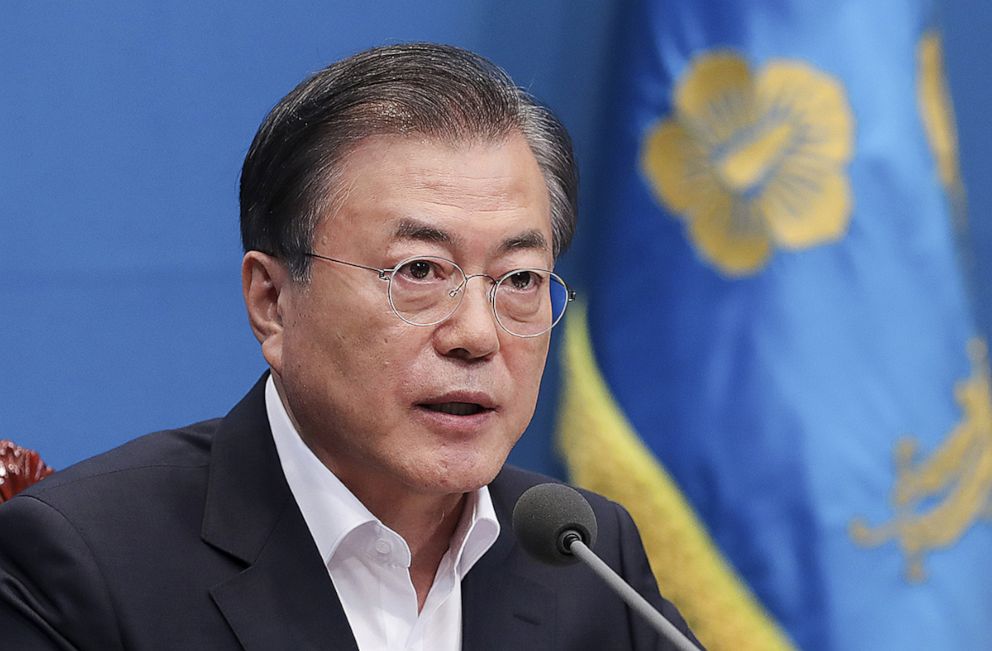Japan removes South Korea from trade 'whitelist'
Japan imposed broad new trade restrictions on South Korea on Friday morning.
SEOUL, South Korea -- Tensions heightened between Seoul and Tokyo after Japan imposed broad new trade restrictions on South Korea on Friday morning. South Korean President Moon Jae-in immediately struck back with strong words.
“It is truly disappointing and regrettable that Japan, which has been regarded as our closest neighbor and friend, has taken such measures,” President Moon said ahead of an emergency Cabinet meeting.
Admitting that the latest trade war between the two countries are indeed hurting South Korean economy, Moon pledged that “we will never again lose to Japan.”
South Korea’s Ministry of Economy and Finance then reciprocated Tokyo’s move by removing Japan from its own whitelist later in the day.
These latest two-way trade restrictions will leave each other out from the preferential treatment given to their trade partners.
Consequently, South Korea would have to seek individual approval for shipments of 857 non-sensitive items out of a total of 1,120 strategic items from Japan, according to Reuters.
This new restriction follows a surprise announcement by Japan early last month that implemented tighter export curbs to South Korea on three essential chemical materials used to produce memory chips and semiconductors.

Unlike trade of finished goods, high-tech industry goods that are sourced globally are interdependent. Countries that rely on South Korea's semiconductors such as the United States, China and even Japan will all be adversely affected, analysts say, causing a domino effect on the global supply chain in computer and smartphone industries.
"U.S. electronics firms, many of which have large production hubs in both the U.S. and China, are vulnerable to supply shortages of South Korean memory chips, given the importance of South Korea as a supplier of chips to both China and the U.S.," Rajiv Biswas, Asia-Pacific chief economist at IHS Markit, told ABC News.
It's not only hardware such as mobile phones and electronic products but also data processing programs that would face supply shortage or delay.
"Memory semiconductor is an integral part of data processing center operated by global IT companies like Google and Amazon," Kim Yang Paeng, research fellow at the Korea Institute for Industrial Economics and Trade, told ABC News.
Japan's sudden exports curb on chemical products going to South Korea stemmed from a decades-long dispute between the two countries over Japan's atrocities during the occupation years from 1910 to 1945, namely controversial issues of "comfort women" and wartime forced labor.
South Korea's Supreme Court ruled last October and November that Nippon Steel & Sumitomo Metal Corp. and Mitsubishi Heavy Industries must compensate Korean victims of wartime forced labor.
But Japan disputes the ruling, saying all reparations had already been settled in a 1965 treaty that normalized relations between the two countries.
"We cannot help but say the relationship of trust has been severely damaged," Japan's Chief Cabinet Secretary Suga told reporters in early July.




